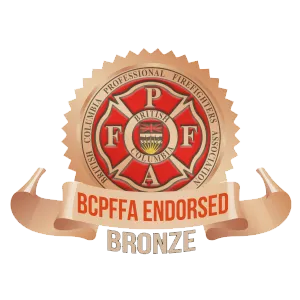Understanding PTSD in Paramedics – Causes, Symptoms, and Effective Coping Strategies

As a paramedic, you know that staying calm under pressure while providing essential medical help is crucial. But what happens when your experiences become too much to handle?
Post-Traumatic Stress Disorder (PTSD) is a common issue for paramedics, often coming from daily exposure to traumatic events.
This blog post explores what causes PTSD in paramedics, its symptoms, and coping strategies designed for them.
What is PTSD?
Post-Traumatic Stress Disorder (PTSD) is a mental health condition that can develop in response to exposure to traumatic events and high-stress situations inherent in their profession.
Trauma and its connection to PTSD is evident in paramedics, as they often witness and experience challenging and distressing incidents, such as severe accidents, life-threatening injuries, and other emergencies. PTSD can result from the cumulative impact of these traumatic experiences.
What Causes of PTSD in Emergency Responders Like Paramedics?
Traumatic experiences in first responders like paramedics can be caused by the following:
- Witnessing Traumatic Events: Paramedics often witness severe injuries, accidents, and life-threatening situations.
- Life-Threatening Situations: Paramedics frequently work in high-pressure environments where they must make quick decisions to save lives.
- Cumulative Stress: The cumulative effect of responding to numerous emergencies over time can take a toll on a paramedic’s mental health.
- Lack of Emotional Closure: Paramedics may not always have the opportunity for emotional closure, especially if the outcome of a medical intervention is uncertain or if a patient does not survive. This lack of closure can contribute to the emotional burden.
What Are Some Symptoms of PTSD in Paramedics?
You or your co-workers may have experienced these common PTSD symptoms:
- Intrusive Memories: Paramedics with PTSD may experience recurrent, distressing memories of traumatic events. These memories can be intrusive and uncontrollable, leading to flashbacks or vivid nightmares.
- Avoidance: For paramedics, this could involve avoiding certain emergency calls or locations that trigger distressing memories.
- Hyperarousal: Paramedics with PTSD may be easily startled, experience heightened anxiety, and have difficulty sleeping. They may exhibit irritability, have trouble concentrating, and be constantly on edge.
- Mood Swings: Another symptom is sudden and intense mood swings, oscillating between periods of intense anxiety, anger, or sadness.
Coping Strategies for Paramedics with PTSD
Here are some effective strategies that you can employ to manage symptoms:
- Build a Support System: Connect with colleagues, friends, and family who can provide understanding and support. Sharing experiences with those who can relate can help alleviate feelings of isolation.
- Self-Care Practices: Prioritize self-care activities, including regular exercise, sufficient sleep, and a balanced diet. Taking care of your body can positively impact your overall mood and resilience.
- Mindfulness and Relaxation Techniques: Practice mindfulness meditation, deep breathing exercises, or progressive muscle relaxation to manage stress and anxiety.
- Engage in Hobbies: Engaging in enjoyable pastimes outside of work can provide a positive outlet for stress.
Effective Traumatic Support for Paramedics
In addition to the above-mentioned coping strategies, it’s important to seek professional help for PTSD, as symptoms can worsen if left untreated.
The highly-trained clinicians at the Diversified Rehabilitation Group are equipped to use individual therapy, group therapy, biofeedback, and other evidence-based approaches to help persons struggling with PTSD.
We offer the Traumatic Stress Recovery Program – a transformative 5-week residential program featuring a small group setting, an intensive approach, and customized treatment.
In addition to one-on-one counseling, participants will build relationships with others through the healing process, creating strong and lasting support networks.
Contact us today to learn more.



